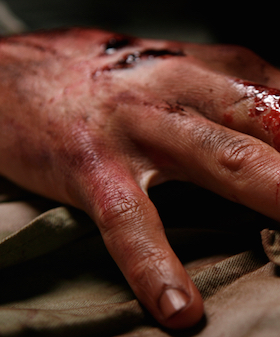Why Workers’ Compensation, Part 2
Workers’ Compensation is important. In many ways, it actually holds up our society. It is a social safety net. And importantly, private industry bears the cost of this social safety net, as they should — it’s their workers’ who are injured and need the safety net.
(Note: private industry is trying to shift the burden of the injured worker to the taxpayer. Read more about this at ProPublica.)
Workers’ compensation is, in many ways, the area of law with the most actual impact on society. This is true even though it’s one of the “least sexy,” especially in the world of torts.
Workers’ comp systems have existed for about 100 years. (You can read a little more about the history of workers’ comp here.) As important as they are today, it’s important to consider a society in which workers’ compensation laws didn’t exist. It’s hard to do, as none of us reading this were alive before the dawn of comp laws.
As might have been gleaned from Why Workers’ Compensation, Part 1, I use historical literature, namely The Jungle, by Upton Sinclair, to understand what society was like for the average worker before the time of comp laws.
Please consider the following excerpt:
“The workers in each of [the various parts of the meatpacking industry] had their own peculiar diseases. And the wandering visitor might be skeptical about [rumors about the industry], but he could not be skeptical about these, for the worker bore the evidence of them about on his own person – generally he only had to hold out his hand.
There were the men in the pickle rooms, for instance, where old Antanas had gotten his death; scarce a one of these had not some spot of horror on his person. Let a man so much scrape his finger pushing a truck in the pickle rooms, and he might have a sore that would push him out of the world; all the joints in his fingers might be eaten by the acid, one by one. Of the butchers and the floorsmen, the beef-boners and the trimmers, all those who used knives, you could scarcely find a person who had the use of his thumb; time and time again the base of it had been slashed, till it was a mere lump of flesh against which the man pressed a knife to hold it. The hands of these men would be crisscrossed with cuts, until you could no longer pretend to count them or to trace them. They would have no nails, – they had worn them off pulling hides; their knuckles were so swollen so that their fingers spread out like a fan. There were men who worked in the cooking rooms, in the midst of steam and sickening odors, by artificial light; in these rooms the germs of tuberculosis might live for two years, but the supply was renewed every hour. There were the beef-luggers, who carried two hundred pound quarters into the refrigerator-cars; a fearful kind of work, that began at four-o’clock in the morning, and that wore out the most powerful men in a few years. There were those who worked in the chilling rooms, and whose special disease was rheumatism; the time limit that a man could work in the chilling rooms was said to be five years. There were the wool pluckers, whose hands went to pieces even sooner than the hands of the pickle men; for the pelts of the sheep had to be painted with acid to loosen the wool, and then the pluckers had to pull out this wool with their bare hands, till the acid had eaten their fingers off. There were those who made the tins for the canned meat; and their hands, too, were a maze of cuts, and each cut represented a chance for blood poisoning. Some worked at the stamping machines, and it was very seldom that one could work long there at the pace that was set, and not give out and forget himself and have a part of his hand chopped off.”
There’s more. And it gets worse from there.
The Bottom Line: When private industry has to pay for the injuries, private industry makes working conditions safer. Why? So they don’t have to pay for injuries. It’s a lot cheaper to get it right up-front than have to pay for significant care. It’s all just economics.





